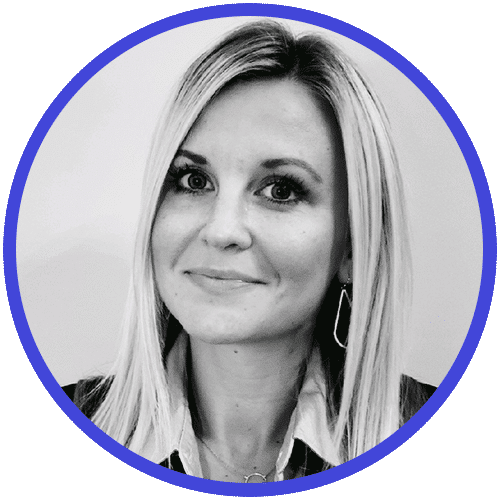If you’re constantly looking for great sales talent, you’re not alone.
Every company is looking for sales superstars, and these positions have notoriously high turnover rates, so the search never ends.
But how do you identify top performers for a position that depends on soft skills such as integrity, communication ability, and dependability that are hard to gauge from a resume? High-potential entry-level candidates come from all walks of life, with different backgrounds and education. Sales managers may thrive in one culture or industry but flail in another. When hiring salespeople, there’s no such thing as a guarantee. In this article, we’ll dig into the most effective ways to assess sales talent using a sales aptitude test. Specifically, we’ll:
- Identify the competencies most aligned with success in three common sales roles—Business Development Representatives (BDRs), Account Executives (AEs), and Sales Managers
- Compare the two most common categories of sales assessments on the market
- Share a few interviewing best practices, including some of the most productive sales leadership interview questions for sales roles
- And hear which sales assessment techniques work best for five successful sales leaders from a variety of industries
1. What makes a great sales professional?
Top salespeople may joke that they can sell anything to anyone, anywhere. But in reality, the competencies sales professionals need to succeed can vary significantly from role to role and industry to industry.
Also, if you’ve ever hired someone straight out of school who turned out to be a superstar, or a veteran sales professional who struggled, you know experience is not a measure of whether a person actually has those competencies.
Wonderlic’s TrueMatch technology, grounded in O*NET (Occupational Information Network) data from The Department of Labor and data from 10 million LinkedIn profiles, enables companies to identify high performers for your open roles by giving them instant, seamless access to 3.5 million off-the-shelf job scoring profiles, including thousands of unique sales-related job profiles.
Below are what TrueMatch identifies as the top competencies (in suggested order of priority) for three of the most common sales roles: Business Development Representatives (BDRs), Account Executives (AEs), and Sales Managers (broken down into three common job titles).
Top Competencies for Business Development Representatives
1. Stress Tolerance
2. Integrity
3. Persistence
4. Dependability
5. Achievement/Effort
6. Self-Control
7. Adaptability/Flexibility

“A BDR manages many activities simultaneously: responding to demands from AEs, aligning and re-aligning their approach to a broader sales strategy, crafting meaningful and customized messaging, responding to prospect inquiries (or lack thereof), and doing it all while managing a myriad of sales technologies.
Stress can come from any of those sources at any given time. The ability to tolerate the highs and lows that can occur any day and even any hour, is critical.”
Megan Bourdages
VP of Sales | Wonderlic
Top Competencies for Account Executives
1. Persistence
2. Integrity
3. Dependability
4. Attention to Detail
5. Adaptability/Flexibility
6. Self-Control
7. Cooperation

“Adaptability and persistence, by far, in my book, are the greatest skills a salesperson can have because it’s crucial in today’s world. If there is one thing for certain, it is that nothing is certain, and you as a salesperson need to be able to shift/change/grow/quickly pivot to accommodate. But, not only do you need to adapt, you also need to be persistent and hold yourself accountable to the adaptation.
It is one thing to quickly pivot, it is another thing to pivot, stay persistent with the pivot, evaluate the merit of pivoting and determine if it makes sense to keep going down the new path you are on, and then potentially start the cycle over and re-pivot. The best salespeople I’ve worked with have all had the uncanny ability to persist and stay the course of change while adapting to the ‘new’ new.”
Max MacCready
Director of Sales | Jellyvision
Top Competencies for Sales Managers
Business Development Coaches:
1. Integrity
2. Dependability
3. Attention to Detail
4. Initiative
5. Cooperation
6. Achievement/Effort
7. Analytical Thinking
Director of Sales:
1. Initiative
2. Integrity
3. Adaptability/Flexibility
4. Dependability
5. Leadership
6. Stress Tolerance
7. Persistence
Sales Account Executive Manager:
1. Dependability
2. Attention to Detail
3. Cooperation
4. Integrity
5. Initiative
6. Persistence
7. Achievement/Effort

“Having integrity as a leader lays the foundation of a relationship with a team and organization. It embodies a culmination of several traits, with a heavy emphasis on trust. In sales, there can always be a temptation to cut corners or do things for self-interested reasons; as a leader, having integrity sets the tone and shapes the culture to ensure that all members are operating with ethical standards.
Brian Paladie
It also simply means that you do what you say you will do, which is a critical part of being an effective leader.”
Director of Sales | Braze
2. The two most common types of sales assessments
Now that we’ve highlighted the most critical competencies for the most common sales roles, let’s look at the two most common types of sales assessment tools used to evaluate whether your candidates possess them:
- Competency-based pre-employment assessments that provide objective insights into a sales candidate’s inherent abilities, personality, and motivation usually administered when they first apply for the job
- Skills-based assessments that gauge a candidate’s ability to perform role-related tasks and approach to responding to common job-specific scenarios, administered as a sales test either early in the hiring process, as part of an interview, or both
Competency-focused sales assessments
A sales assessment that focuses on inherent candidate competencies can provide unique insights into whether a candidate can handle the learning and problem-solving aspects of the job, how they’d likely interact with others on your team, and to what degree the job they’ve applied for actually aligns with their interests.
These insights give hiring teams a clear sense of both whether a candidate can succeed now—and their potential to succeed long-term. Additionally, they help reduce hiring bias because they measure candidates on their inherent abilities, behavioral tendencies, and motivations, rather than external factors such as formal education or previous experience.
Usually, companies administer competency-based assessments during the application process. These assessments can help you initially screen candidates who are highly unlikely to be a good fit, decide who to phone screen, and consider who to bring in for interviews or a work simulation (where you might additionally administer a scenario-based job tryout).
The objective insights from these competency-focused assessments can also be used to help shape the focus of interviews and give an extra layer of insight into the candidate, even in final rounds.
Lastly, many employers favor these assessments because they can use them for every role they hire for, not just for sales roles. While every candidate’s assessment is the same, scores are based on which competencies are most critical to success in the specific job they applied for. This flexibility can also reduce overall costs, by eliminating the need for a company to buy multiple category-specific assessments.
The flexibility of competency-based pre-employment assessments can reduce overall costs by eliminating the need for a company to buy multiple category-specific assessments.
Here are some common types of competency-based assessments used to hire salespeople:

Cognitive ability assessments, also sometimes called aptitude tests, feature challenges related to simple math, logic, language comprehension, memory, and spatial reasoning. The results of these tests can help you assess a sales candidate’s ability to manage complex sales cycles, learn new technologies and sales processes, and adapt to each customer’s needs. For decades, research has repeatedly demonstrated that cognitive ability is the best single predictor construct of future job performance—more than personality, emotional intelligence and interests.

Personality assessments can provide insight into a sales candidate’s temperament, behavior, and how they interact with other people. Recruiters and hiring managers might use a pre-employment sales personality test to gain insights into whether a potential Account Executive is likely persistent enough to chase down leads and follow through with closing sales or whether a potential sales manager has leadership qualities.

Motivation assessments reveal a candidate’s work-related interests so you can find people who will thrive in a sales environment. Someone who is most attracted to enterprising work, for example, might be better suited to growing sales. A motivation assessment could also help you discover a hidden gem, such as a person who lacks sales experience but is highly motivated by balancing a bottom line and revenue generation.

Multi-measure assessments combine cognitive ability, personality, and motivation to reveal a three-dimensional, “whole person” view of the candidate. While each type of competency-based test can be helpful on its own, combining the data from all three provides insights that are greater than any of them on their own, and statistically better at predicting a candidate’s potential to succeed. (The scientific term for this boost in predictive power is “incremental validity.”) Wonderlic’s Select assessment is an example of this type of assessment.
Skills-based sales assessments
Hiring teams tasked with evaluating talent for sales roles also want to understand a candidate’s comfort levels with common sales-related technology and what the candidate might do in different scenarios. This information is often gathered with a written sales skills assessment, recorded video responses to standard questions, and questions asked directly to a candidate during an interview (we’ll get to the last of these in the next section).
Written skills-based assessments
A sales skills assessment or test is generally used early in the hiring process to weed out poor-fit candidates—and are more or less questionnaires.
A written role-playing assessment for B2B sales, for example, might include questions that present common scenarios (say, a prospect objects because their budget is too small)—and then provide the candidate with multiple-choice options for how to best respond. Written assessments might also prompt candidates to go beyond multiple choice and write out how they’d respond to various prospect email communications.
Video response assessments
Some assessment vendors allow candidates to respond to these sorts of standard questions in a video recording, so hiring teams can see what the candidate looks like, how they answer the questions, and so on.
While these assessments are convenient in that they can be administered at scale, they have limitations:
They’re only able to assess a candidate’s current skillset
Whereas competency-focused tests are designed to reflect core traits and help predict short-term and long-term job performance as well as a candidate’s ability to learn and grow on the job, skills tests are generally designed only to reflect the acquired knowledge a candidate brings to the table right now.
While previous generations of workers could master a skill that lasted their entire career, today, with the rapid evolution of technology, things move faster. According to a 2011 book, A New Culture of Learning, the half-life of a learned skill is estimated to be only five years, which means in just five years, a candidate’s current skill set will be half as valuable as it is today. (And considering it’s been more than a decade since that estimate was created, the half-life of a skills is likely even shorter now.)
Importantly, what this also implies is that understanding a person’s existing skillset is becoming increasingly less important than understanding their ability to successfully take on new skills.
Both are susceptible to manipulation
Unfortunately, using written and video skills assessments can produce results that are closer to a calculated performance than a reliable accounting of a candidate’s actual fluency with certain technologies and their approach to solving real problems.
Because the types of questions featured in these types of sales assessments are fairly standard and easy to hunt down online (Google “how to pass sales assessment test” and see what comes up), it’s relatively easy for candidates to study up on how they should respond. (Many outlets claim to help people “beat” competency-based assessments as well, but the best competency-based assessments are designed specifically to flag candidates who are answering in a calculated way to produce what they think is a desired result.)
Check out how Wonderlic assessments helped Colton RV identify great non-traditional sales candidates.
3. The best interview questions for common sales roles
Of course, candidates also say what they think their audience wants to hear all the time in face-to-face interviews (both in-person and virtual).
Even the most well-intentioned interviewer is prone to inherent biases that can cloud their judgment—for example, gravitating toward people with similar backgrounds because they feel that those people are “easy to talk to” or are simply more likable than a highly qualified candidate who has a different personal background. When the candidate is a salesperson who has made a living from the way they carefully present themselves to others, these biases can be especially pronounced.
However, while flawed, interviews (unlike recorded video responses to questions) allow for follow-up questions to behavioral and scenario-based questions, which provide more opportunities for hiring teams to assess whether the person saying all the right things actually knows what they’re talking about.
When done right—with consistency, fairness, and the most relevant questions and follow-up questions—interviews can be a very useful way to assess both a candidate’s existing skill set and their potential. For organizations planning their sales hiring process, having a proven framework can be a key resource that can help choose strong candidates and make strategic hiring decisions based on the top sales performance metrics.
Here are some interview questions to consider asking BDR, AE, and Sales Leader candidates that can help reveal the competencies most relevant to their role.
BDR interview questions
- Stress Tolerance: Tell me about a time you had a stressful interaction either with your boss or a prospect, and how you handled it.
- Integrity: You notice that one of your colleagues has sold a sales prospect on something your company can’t actually deliver. How would you handle this situation?
- Persistence: How would you respond to a prospect who ghosted you for a meeting, and hasn’t returned any of your last three emails?
- Dependability: Tell me about a time you dropped the ball at work and how you rectified the situation and learned from it.

“When interviewing for a BDR role, I’m interested to learn more about their ability to manage the many players involved in sales (their manager, AEs, their prospects), how persistent they are when things aren’t going their way, and how they respond to the stress and pressure of the role. Nearly all of my interview questions begin with ‘tell me about a time when’ as I’m looking for real life stories, not boilerplate interview responses.”
Megan Bourdages
VP of Sales | Wonderlic
“My favorite question to ask a potential BDR candidate is where they see themselves in a year from having taken on the position. Often times I’ll get the usual, ‘I see myself as a top salesperson having graduated from the business development team,’ which by all means is great to hear. I myself am a product of starting as a BDR and rising through the ranks. I get it.
Max MacCready
The better answer in my opinion, though, sounds like this: ‘Over the next year I want to be a student of your company and industry, gaining a better understanding of where we fit in the market and how our specific product/service helps and differs from others in play. If the next year leads to me joining the ranks of your sales team, then great. BUT my main goal is first and foremost to become an expert on WHY people would want to talk to us in the first place (and become a top performing BDR for your team for good measure).’”
Director of Sales | Jellyvision

AE interview questions
- Persistence: Tell me about the deal that took the longest to win that you’ve ever been a part of. This can be especially useful when hiring for a role with long sales cycles.
- Integrity: Have you ever experienced negative consequences for doing the right thing? Tell me about it.
- Attention to Detail: Have you ever found an error in your work that wasn’t obvious at the start? What steps did you take to reduce the chances of that happening again?
- Adaptability: What’s the most creative way you’ve ever closed a deal?

“Personally, I ask candidates for Account Executive roles to come prepared with a deal they’re particularly proud of and have them walk me through the process start to finish. This will tell you EVERYTHING you need to know about 1) how much of the deal progression was THEM vs. supportive resources, 2) how warm/cold an opportunity they’re comfortable with handling, 3) general understanding of the buying process and their ability to drive urgency and 4) level of comfort with late-stage deal negotiations/pricing/procurement.”
Jessica Watts
Founder of MudCity, a sales and operations consultancy in Chicago
“The favorite question I get asked is what got me into selling and it’s one I like to ask others to understand their core motivation and what brings them to work in this field. Like with anything it’s always good to have context to better understand an individual. Everyone’s got a really interesting story/path to this interview, so it’s good to give that chance for them to share.”
Sam Hurteau
Account Executive | Enterprise Corporate Sales at BetterUp

Sales Manager interview questions
- Integrity: Have you ever experienced negative consequences for doing the right thing? Tell me about it.
- Attention to Detail: What do you think our company could be doing better, based on what you’ve researched about us online? This question helps you find out how much research they did prior to the interview (indicating their attention to detail) while also demonstrating their initiative and analytical thinking abilities.
- Cooperation and leadership: Tell me about how you’ve gone about building trust with previous teams, either one you inherited or one you were able to build from the ground up.
- Achievement/Effort: What are a few of the accomplishments you’re most proud of that have happened to you as a sales leader? This can help you understand their achievement, effort and what motivates them—and touch on their leadership style as well.

One of my favorite behavioral questions to ask sales leader candidates is what they would do with an employee who has under-performed for two months in a row. I like to hear if they do early intervention and if their first thought is to fire vs. coach. I look for sales leaders that act early to prevent multiple-month missteps and ones that first look to coach and guide rather than the response being “PIP and terminate.”
Megan Bourdages
VP of Sales | Wonderlic
“I like to ask a two-part question: 1) How would your top performer describe you? followed by 2) How would your lowest performing team member describe you? I think this two-part question allows for the opportunity to uncover how the sales leader approaches their work with not just the best performers, but also what their commitment is like to those who may need additional coaching/skill building—or who may have a negative perspective on the leader.”
Brian Paladie
Director of Sales | Braze


“I always use a Mock 1:1 as the final interview scenario. I provide the leader with a TON of information, intentionally way too much, with the goal of seeing how they can marry disparate pieces of information into a teachable moment. That is the role of the manager after all: to create focus for the rep. This means the manager has to be very adept at understanding what is worth coaching on and why. This process gets you very close to seeing all of the competencies at work.”
Jessica Watts
Founder of MudCity, a sales and operations consultancy in Chicago
4. Other interviewing best practices for sales candidates
Equally important as asking sales candidates the right questions is setting up your interviews so they are as immune to bias—and productive—as possible. Here are two ways to do that:
Use structured interviews (along with multi-measure assessment data)
In structured interviews, also called standardized interviews, interviewers pose the same set of questions to every applicant for a single position and rate them on a standardized scoring system. You should tailor these questions for the position but keep them standard among candidates.
Highly structured interviews are very effective at reducing hiring bias—just like objective, competency-based assessments—in that they add an extra level of consistency to the candidate evaluation process. Everyone gets the same test and responds to the same core set of interview questions. Not only is the consistent format the right thing to do because it is fairer than unstructured interviews, but it also puts a structure in place that allows the interviewers to focus on taking notes and evaluating candidates, rather than coming up with follow-up questions on the fly.
Structured interviews result in better hires when used alone, but they can be even more illuminating when used in conjunction with objective competency assessment data. More specifically, according to recent Wonderlic research, the best way to predict a candidate’s performance is a combination of structured interviews and multi-measure tests.
This test data can also help direct hiring teams towards the most productive follow-up questions. For example, after asking candidates the same four core questions pertinent to the role, a hiring team might add a set of questions that are contingent on how a candidate scored on the extraversion portion of their assessment. Candidates who scored low might get a question intended to dig more into what strategies they use to make sure their ideas are heard in meetings; those who scored high might get a question focused more on what strategies they use to ensure other people’s ideas are heard in meetings.
Be intentional and fair in how you allocate time
In an interview with The Best Hire Ever podcast, Siadhal Magos, co-founder of interview analytics company Metaview shared some precise data about best practices culled from tens of thousands of interviews. According to their data, interviewers should:
- Begin with an introduction that covers a candidate’s high-level background, explains the purpose and structure of the interview, and is no more than five minutes long.
- Ask at least eight questions per hour (or four questions if you only have half an hour), setting aside five to six minutes for the candidate to answer each question. If you make the common mistake of not asking enough questions, you’ll end up having a shallow conversation that won’t help you filter candidates and make a proper hiring decision.
- Save seven to eight minutes at the end for the candidate to ask questions
- Be mindful about giving candidates of all genders equal amounts of time to answer questions (Sadly, their data revealed that when men interviewed women, they spoke 30% more words than they did when talking to another man, dominating 60% of the discussion.)
Conclusion
Finding the people who are most likely to crush their sales quotas consistently and become valuable members of your team has always been—and will always be—challenging.
Sales positions, more than many other roles at your organization, require soft skills that can seem abstract and difficult to evaluate—and often, employers pull the wrong levers when trying to do so.
However, if you prioritize sales assessments and interviews that are objective and focused on evaluating competencies and potential more than experience, you’ll significantly improve your chances of success.







